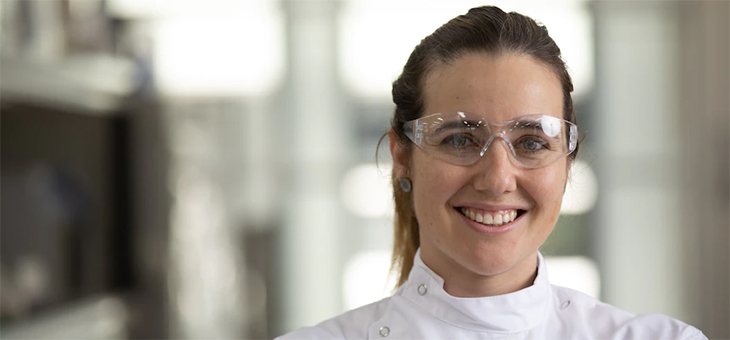A woman in Queensland is suspected of catching COVID-19 from a fully vaccinated hotel quarantine worker who tested negative for the virus.
The theory is the staff member inadvertently passed a variant of the virus from one traveller to another who was staying on a different floor of the hotel.
So, how can you pass COVID-19 from one person to another without testing positive yourself?
How did this happen?
Health authorities believe the hotel quarantine staff member, who was fully vaccinated, is the link between the two travellers.
First, the worker escorted a man – who had returned from Mongolia and was sick with COVID-19 – to a waiting ambulance.
The worker later went to another level of the hotel and took a nasal swab from a flight attendant as part of routine testing,
After leaving hotel quarantine, the flight attendant tested positive for the same genomic strain as the man from Mongolia.
Health authorities think the worker somehow passed the infection from the first person to the second, despite having testing negative for COVID-19 themselves.
Surface-to-surface transmission
One theory is the worker had viral particles on her after interacting with the man and she passed them to the flight attendant.
University of Queensland (UQ) immunologist Larisa Labzin said this was a possible scenario.
“We know that the virus can certainly survive for some time on surfaces,” Dr Labzin said.
However, she said this was unlikely to have been what happened, given the hotel worker would have been wearing fresh personal protective equipment (PPE).
“It’s pretty hard to envisage how it could have happened, but I guess it goes to show how infectious this thing is,” Dr Labzin said.
Kirsty Short, a virologist from UQ, agreed with her colleague regarding the surface-transmission theory.
“That’s probably [responsible for] less than 10 per cent of transmission events, so it’s a much rarer route,” Dr Short said.
‘Transient’ infection
The second theory, which was favoured by the experts the ABC spoke to, is the hotel worker did contract COVID-19 but only for a very short time.
- Here’s a list of the major COVID-19 variants considered a threat right now
- The ‘mystery’ at the heart of Brisbane’s latest COVID-19 scare
Dr Labzin said the worker, who was fully vaccinated, could have caught an extremely brief case of COVID-19 without ever knowing.
She said it would have been a brief infection because the worker’s immune system had been boosted by being fully vaccinated.
“When I say that, I mean that they caught the virus and it was potentially in their body long enough to potentially transmit on to the other patient,” Dr Labzin said.
She said the period she was infected could have been so brief that the worker still tested negative to COVID-19 later.
Dr Short explained a so-called “transient” infection may not even show up during testing to see if the worker had been exposed to the virus.
“It wasn’t enough of an infection to elicit an immune response, so you wouldn’t really see anything in serology,” Dr Short said.
- What the change of advice on AstraZeneca means for under-60s
- What impact will the AstraZeneca advice have on our vaccine rollout?
What does that mean for the vaccine?
If a fully vaccinated person can still contract the virus and potentially infect others without testing positive, what does that mean for the vaccine program?
Dr Labzin said it was still very important people got vaccinated.
“The first goal of our vaccines is to stop everyone getting severely sick with COVID-19,” she said.
“If we can keep people out of hospital and stop people from dying from this disease, we can turn COVID-19 into the equivalent of the common cold – and that’s already a huge achievement.
“What this means is that we just need everyone to get vaccinated so that everyone is protected.”
Both are very rare scenarios
Whether the virus was transferred from a surface or from a “transient” infection, we will probably never know.
“I think it’s going to be hard to determine it conclusively,” Dr Short said.
“But I think either way both are relatively rare scenarios, so it shouldn’t be something that we expect to happen very frequently.”
 © 2020 Australian Broadcasting Corporation. All rights reserved.
© 2020 Australian Broadcasting Corporation. All rights reserved.
ABC Content Disclaimer

